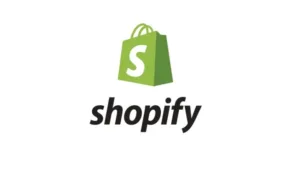I would like to ask about shopify pagination version 2020-01
First request query:
URL: https://klevarange.myshopify.com/admin/api/2020-01/orders.json?fulfillment_status=unfulfilled&limit=250&financial_status=paid&created_at_min=2019-08-27T16:15:47-04:00
Return Header:
"<https://klevarange.myshopify.com/admin/api/2020-01/orders.json?limit=250&page_info=eyJmaW5hbmNpYWxfc3RhdHVzIjoicGFpZCIsImZ1bGZpbGxtZW50X3N0YXR1cyI6InVuZnVsZmlsbGVkIiwiY3JlYXRlZF9hdF9taW4iOiIyMDE5LTA4LTI3IDIwOjE1OjQ3IFVUQyIsImxhc3RfaWQiOjIxMDQ4NzIxNzM2NTIsImxhc3RfdmFsdWUiOiIyMDIwLTAyLTI3IDAwOjA5OjUyIiwiZGlyZWN0aW9uIjoibmV4dCJ9>; rel="next""
2nd Request Query:
"https://klevarange.myshopify.com/admin/api/2020-01/orders.json?limit=250&page_info=eyJmaW5hbmNpYWxfc3RhdHVzIjoicGFpZCIsImZ1bGZpbGxtZW50X3N0YXR1cyI6InVuZnVsZmlsbGVkIiwiY3JlYXRlZF9hdF9taW4iOiIyMDE5LTA4LTI3IDIwOjE1OjQ3IFVUQyIsImxhc3RfaWQiOjIxMDQ4NzI1MzQxMDAsImxhc3RfdmFsdWUiOiIyMDIwLTAyLTI3IDAwOjEwOjA3IiwiZGlyZWN0aW9uIjoibmV4dCJ9>; rel="next""
Result: Bad Request
What should I put in page_info? Do I need to include the rel="next"" in the page_info?
Thank you.

 Question posted in
Question posted in 

3
Answers
You should use only this part:
https://klevarange.myshopify.com/admin/api/2020-01/orders.json?limit=250&page_info=eyJmaW5hbmNpYWxfc3RhdHVzIjoicGFpZCIsImZ1bGZpbGxtZW50X3N0YXR1cyI6InVuZnVsZmlsbGVkIiwiY3JlYXRlZF9hdF9taW4iOiIyMDE5LTA4LTI3IDIwOjE1OjQ3IFVUQyIsImxhc3RfaWQiOjIxMDQ4NzI1MzQxMDAsImxhc3RfdmFsdWUiOiIyMDIwLTAyLTI3IDAwOjEwOjA3IiwiZGlyZWN0aW9uIjoibmV4dCJ9i.e. withoutrel="next"In the 2nd and all next requests, you can only pass up to 3 query parameters:
page_infolimitfieldsSo if you want to get results from the next page you need to extract
page_infovalue from the first response headers.The idea is that you can move only forward or backwards while requesting the results and you can get the link (page_info token) to the next (or previous) page only after retrieving the current page results.
Remove > from your page_info variable
and Make your request URL like below.
Digging Deeper
You need to iterate your while loop until there is no Link Parameter in the response header and this parameter is not a static value it is the address of last object you get and saying next will give you next 250 objects.
you need to update your pageInfo parameter in every request with newly generated next reference ( pageInfo )
When you do not get this parameter that means there is no next or previous page .
Have a look in this below code…( written in php )
How to create pagination in shopify rest api using php
Maybe in the last 2 years, Shopify has made some modifications to their API, then I use
GetNextPageFiltermethod. This is my approach.Where
shopUrlis the entire URL (https://{apiKey}:{password}@{hostname}/admin/api/{version}/{resource}.json) andaccessTokenis the URL {password} atribute